Space Worksheets for Ages 5-7 - Page 2
32 filtered results
-
From - To
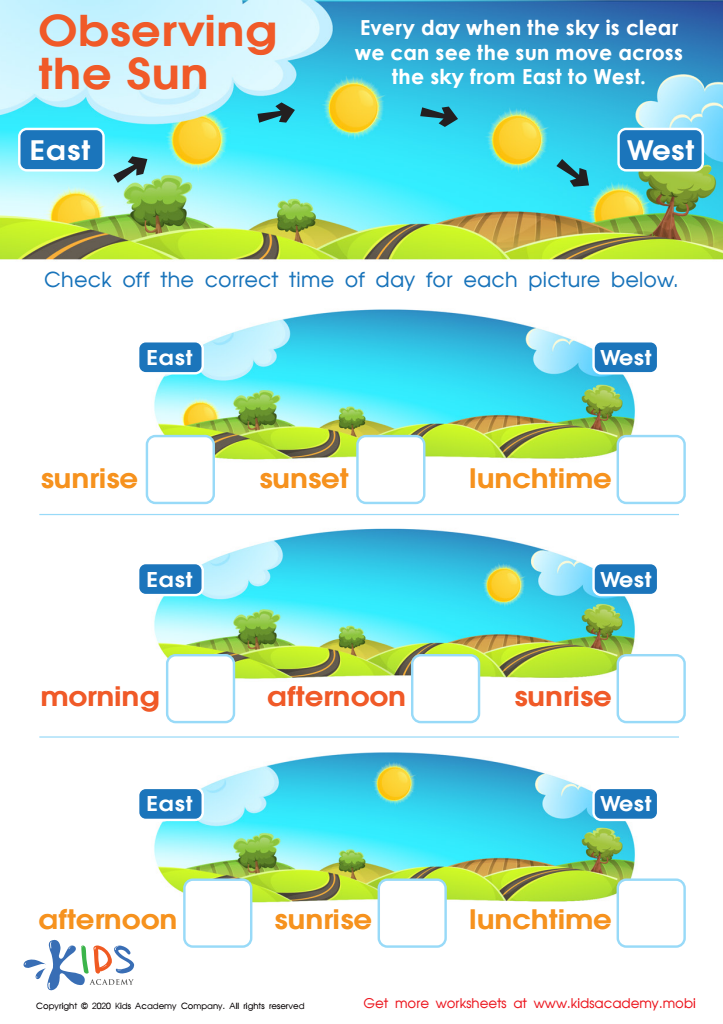

Observing the Sun Worksheet


Space: Assessment 2 Worksheet
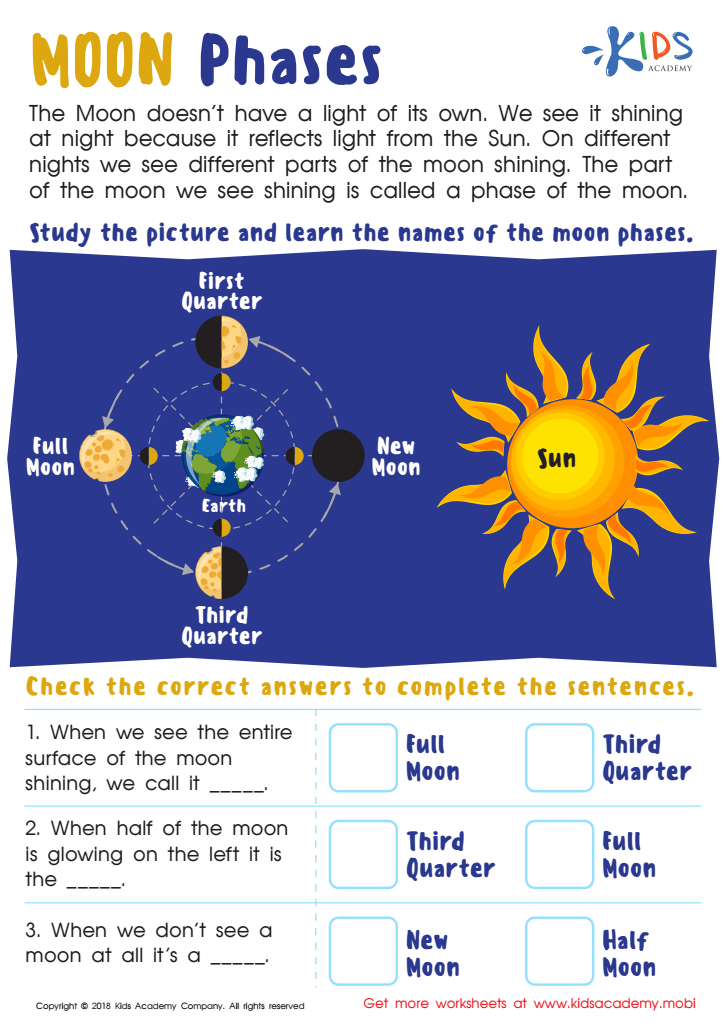

Moon Phases Worksheet
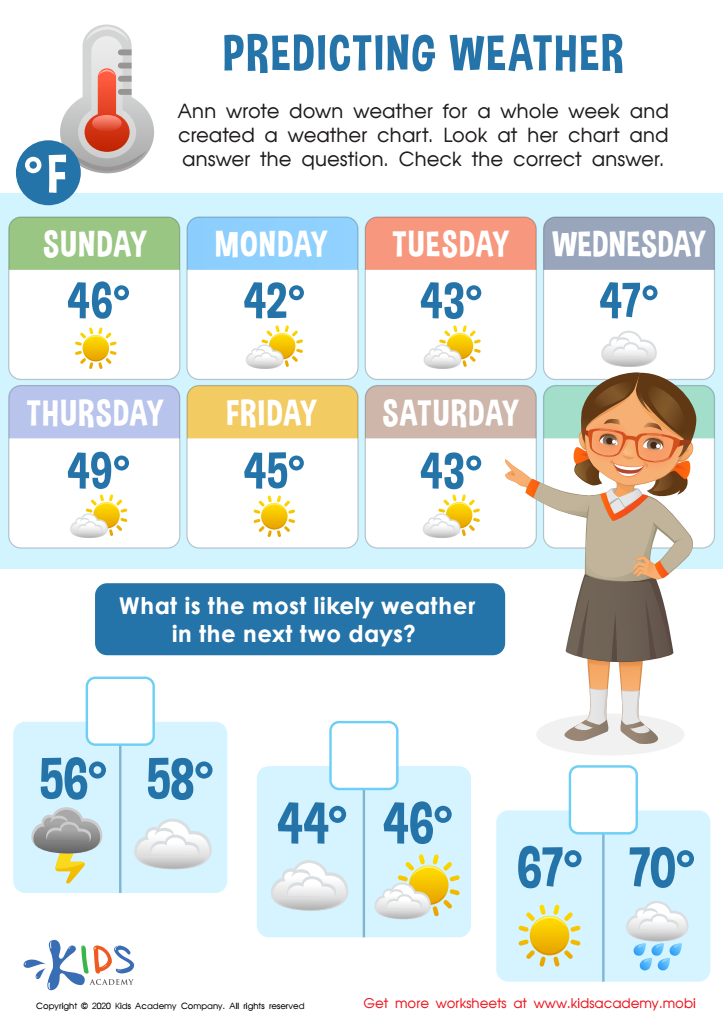

Predicting Weather Worksheet
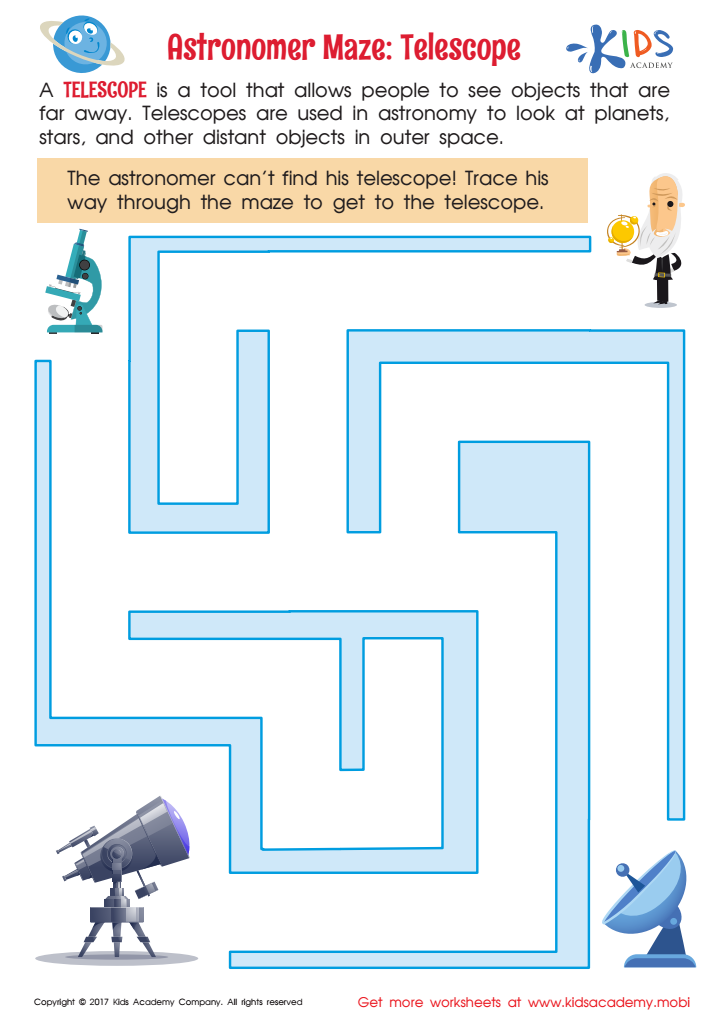

Astronomer Maze: Telescope Worksheet
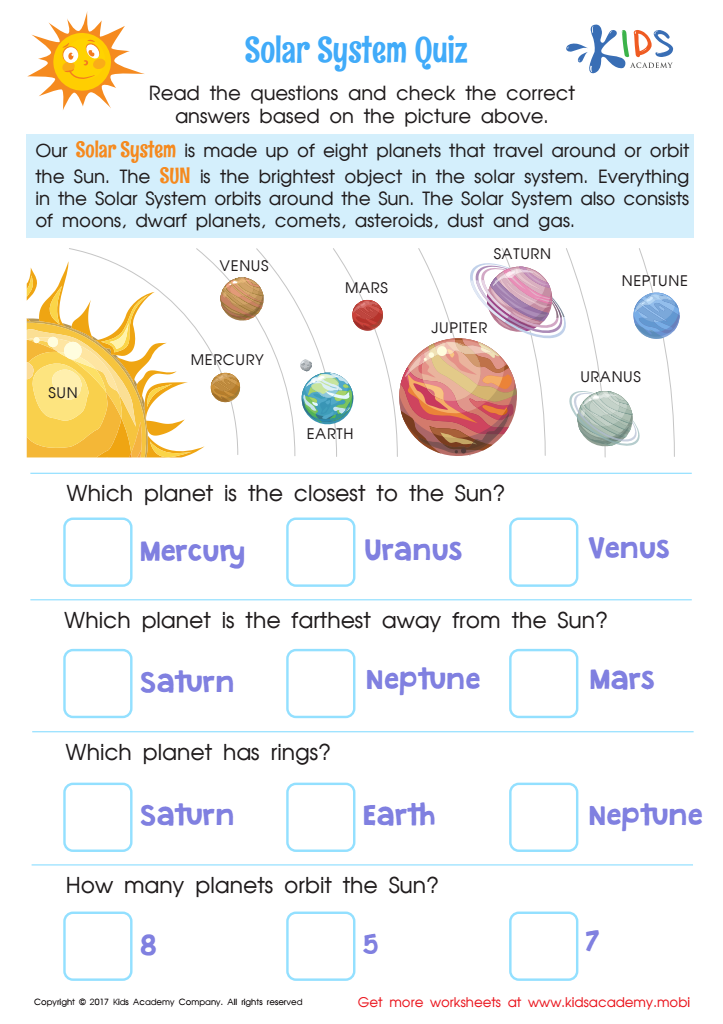

Solar System Quiz Printable
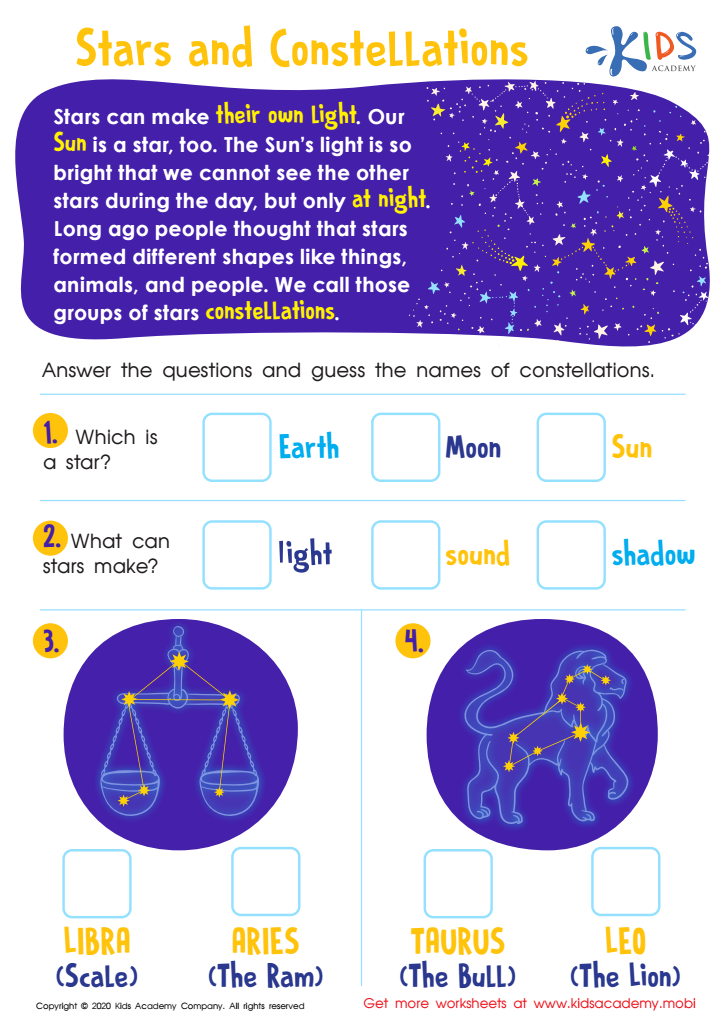

Stars and Constellations Worksheet
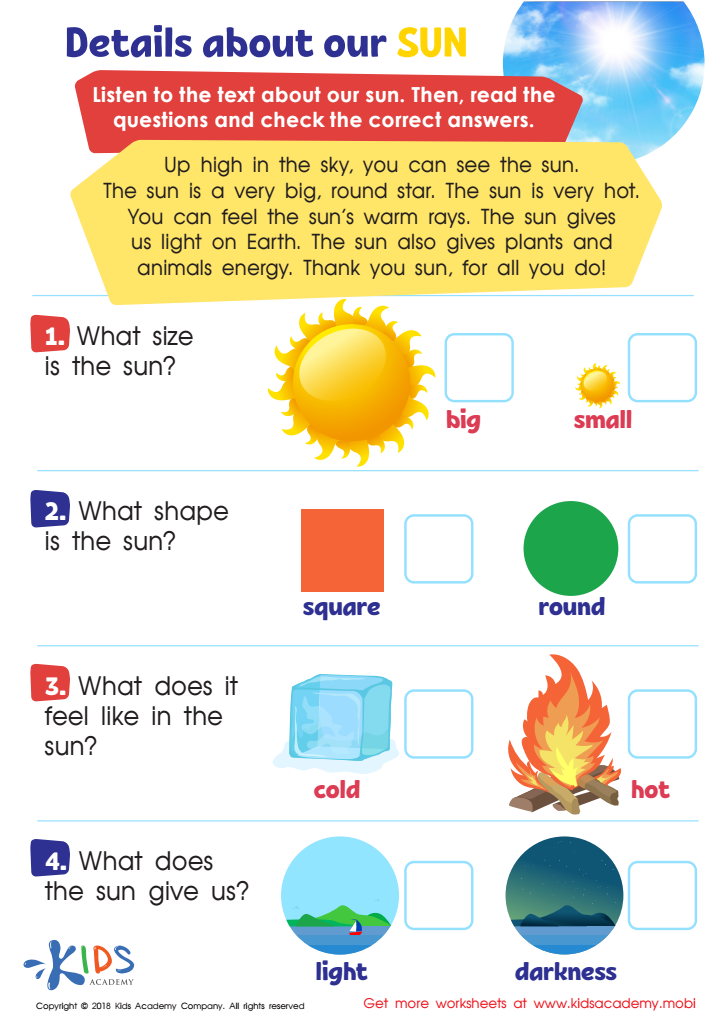

Details About Our Sun Worksheet
Parents and teachers should care about space education for children aged 5-7 because it ignites curiosity and imagination. At this age, children are naturally inquisitive about the world around them, and space offers endless opportunities for exploration. Learning about space helps develop early science skills, encouraging children to ask questions, make observations, and think critically.
Additionally, space can be a fascinating gateway to concepts in math and engineering. Simple activities like counting stars, building models of planets, or understanding gravity can make these subjects fun and relatable. This hands-on learning fosters a love for science and lays the groundwork for future academic success.
Moreover, space exploration hobbies, like stargazing or visiting planetariums, can strengthen family bonds when parents engage in these activities with their children. Understanding the scale of the universe also promotes humility and wonder, instilling a greater appreciation for our planet and encouraging environmentally friendly actions.
Ultimately, caring about space education means nurturing well-rounded, curious individuals who may one day contribute to advancements in science and technology. By inspiring young minds today, we shape the explorers and innovators of tomorrow, reinforcing the importance of discovery and understanding in a rapidly changing world.
 Assign to My Students
Assign to My Students
















